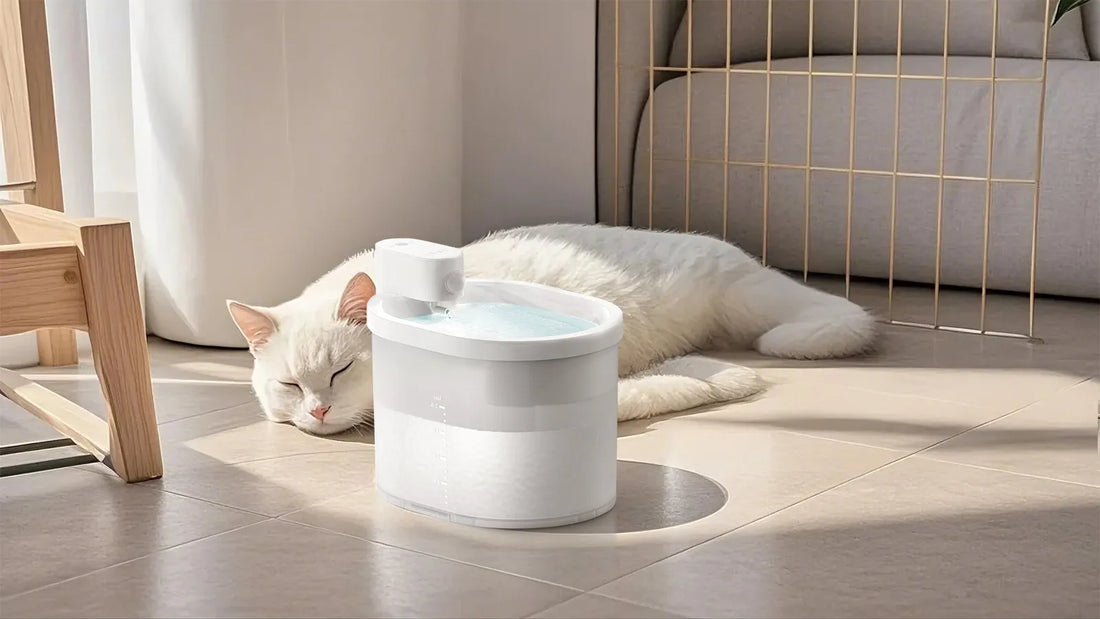As your beloved canine companion ages, you may notice changes in their behavior and habits. One common concern for pet owners is when an older dog starts drinking a lot of water and peeing more frequently. While this could be a harmless sign of aging, it might also indicate an underlying health issue that requires attention. Understanding the potential causes can help you determine when it's time to consult your veterinarian.
Common Causes of Increased Thirst and Urination in Older Dogs
There are several reasons why an older dog might start drinking more water and urinating more often. Some of the most common causes include:
1. Kidney Disease
Kidney disease is a prevalent condition in older dogs. As the kidneys lose their ability to concentrate urine, your dog may drink more water to compensate, leading to increased urination. Other symptoms may include weight loss, lethargy, and a decreased appetite.
2. Diabetes Mellitus
Diabetes is another common cause of excessive thirst and urination in older dogs. When a dog has diabetes, their body either doesn't produce enough insulin or can't use it effectively, leading to high blood sugar levels. This results in increased water intake and frequent urination.
3. Cushing's Disease
Cushing's disease, or hyperadrenocorticism, occurs when the adrenal glands produce too much cortisol. This condition can cause increased thirst and urination, along with other symptoms like hair loss, a pot-bellied appearance, and increased appetite.
4. Urinary Tract Infections (UTIs)
Urinary tract infections can cause discomfort and lead to increased urination in dogs. Older dogs are more susceptible to UTIs due to weakened immune systems. Signs of a UTI include straining to urinate, blood in the urine, and frequent licking of the genital area.
5. Liver Disease
Liver disease can also lead to increased thirst and urination in older dogs. The liver plays a crucial role in filtering toxins from the body, and when it's not functioning properly, it can cause a range of symptoms, including increased water intake and urination.
When to Seek Veterinary Care
While occasional increases in water intake and urination may not be cause for concern, persistent or severe changes should prompt a visit to the veterinarian. Early diagnosis and treatment can help manage or even reverse some conditions. Here are some signs that indicate it's time to seek professional help:
- Your dog is drinking and urinating excessively for more than a few days.
- There are changes in the color, odor, or consistency of your dog's urine.
- Your dog shows signs of discomfort or pain while urinating.
- You notice other symptoms like weight loss, lethargy, or changes in appetite.
Diagnostic Tests Your Veterinarian May Perform
To determine the underlying cause of your dog's increased thirst and urination, your veterinarian may recommend several diagnostic tests, including:
- Blood tests to check for kidney function, liver function, and blood sugar levels.
- Urinalysis to detect infections, crystals, or other abnormalities in the urine.
- Imaging studies like X-rays or ultrasounds to examine the kidneys, liver, and other internal organs.
- Hormone tests to rule out conditions like Cushing's disease or diabetes.
Managing Increased Thirst and Urination in Older Dogs
Once the underlying cause is identified, your veterinarian will recommend a treatment plan tailored to your dog's specific needs. Management strategies may include:
- Medications to control conditions like diabetes, Cushing's disease, or UTIs.
- Dietary changes to support kidney or liver function.
- Increased access to fresh water to prevent dehydration.
- Regular monitoring and follow-up visits to track your dog's progress.
Preventive Measures for Older Dogs
While not all causes of increased thirst and urination can be prevented, there are steps you can take to support your older dog's overall health:
- Provide a balanced diet that meets your dog's nutritional needs.
- Ensure your dog gets regular exercise to maintain a healthy weight.
- Schedule routine veterinary check-ups to catch potential issues early.
- Monitor your dog's water intake and urination habits for any changes.
Seeing your older dog drink more water and pee more frequently can be alarming, but understanding the potential causes can help you take the right steps. Whether it's a simple adjustment or a more serious condition, early intervention is key to ensuring your furry friend stays healthy and happy. Don't hesitate to reach out to your veterinarian if you notice any concerning changes in your dog's behavior.














